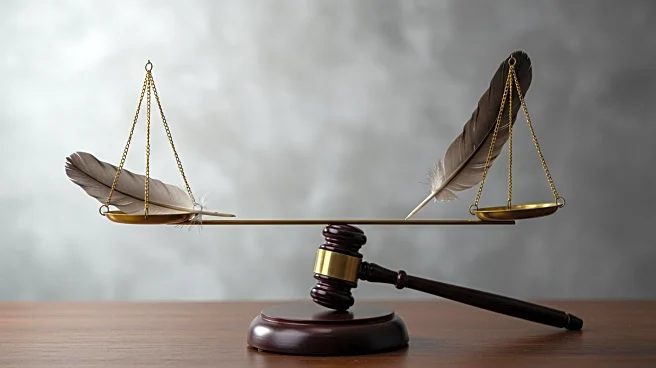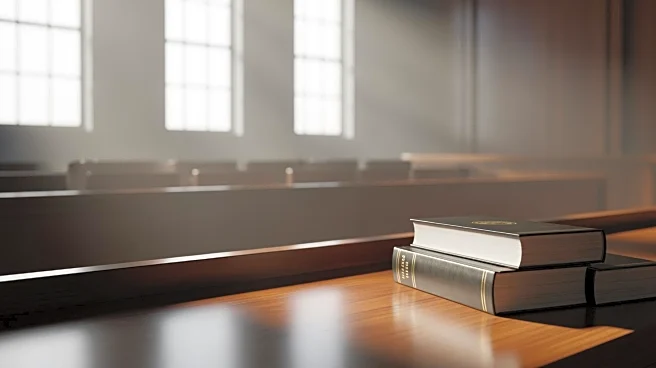What is the story about?
What's Happening?
A recent government memo has sparked debate over religious expression in the workplace, particularly among federal employees. The memo, which aligns with policies from the Trump administration, allows federal workers to engage in religious activities, such as praying and discussing their religious beliefs, during non-working hours, provided it is not deemed harassing. This policy has raised concerns among employment law experts about potential workplace harassment claims. While the policy currently applies only to federal employees, there is speculation that similar measures could be adopted in the private sector if the U.S. Equal Employment Opportunity Commission (EEOC) and state anti-bias agencies follow suit. The EEOC's acting chair, Andrea Lucas, has emphasized religious liberty as a priority, which could influence future policy directions.
Why It's Important?
The implications of this policy are significant for workplace dynamics and civil rights. Allowing unchecked religious expression could lead to a hostile work environment, particularly for LGBTQ+ employees and those of minority religions. The policy tests the balance between religious freedom and the protection of civil rights in the workplace. Legal experts highlight the potential for coercive situations, especially where power dynamics between supervisors and subordinates are involved. The policy's impact on employee morale and retention is also a concern, as a perceived lack of inclusivity could deter talent from joining or staying with an organization.
What's Next?
As the policy unfolds, it is likely to face legal challenges that will test the boundaries of religious expression in the workplace. Courts may need to address how far religious freedoms can extend without infringing on the rights of others. Employers are advised to remain neutral and consider the potential for undue hardship as a defense against claims of coercive religious conduct. The policy's evolution will be closely watched by legal scholars, employers, and civil rights advocates, as it could set precedents for future workplace policies.
Beyond the Headlines
The policy raises ethical questions about the role of religion in professional settings and the potential for discrimination. It highlights the need for clear guidelines to prevent coercion and protect employees' rights to a harassment-free workplace. The balance between religious expression and civil rights will continue to be a contentious issue, with potential long-term implications for workplace culture and diversity.
















